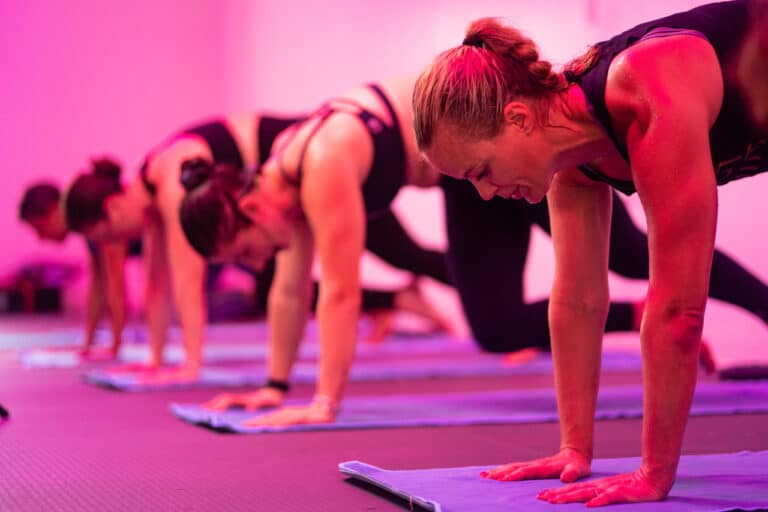AS WE MOVE (FINGERS CROSSED!) OUT OF THE COVID-19 PANDEMIC, EXPERTS OFFER WAYS FOR KIDS AND ADULTS TO DEAL WITH THE STRESS, ANXIETY AND FEAR THAT CAN COME WITH THE TRANSITION.
You’ve heard it before: From remote working and virtual learning to the stress of not seeing loved ones and trying to stay safe and healthy, the strain of the Covid-19 pandemic has truly taken its toll. And now, as vaccina- tion rates increase and we begin to move out of the pandemic, other stressors may arise.
“We, as families and communities, have spent the last 15 months or so having fear instilled in us regarding a global pandemic that no one has experienced in their lifetime,” explains Laura Saunders, a psychologist at the Institute of Living at Hartford HealthCare. “It’s understand- able that both adults and children will have some carryover anxiety.”
To help, we spoke with experts for tips to help with everything from social anxieties to worries about the future—for both adults and kids.
DEALING WITH THE TRANSITION
So what exactly does Saunders mean by ‘carryover anxiety? “It’s when we have a level of fear or anxiety as if this is still the beginning of a global pandemic; when new guidelines and information were coming out every week,” she explains. “The level of fear and uncertainty was very high in the spring, summer and fall of 2020 and into the winter of 2021. We need to ground our- selves in the reality that we have gotten through the worst of this and we are mov- ing in a positive direction.”
Along with this anxiety, experts say people might be experiencing a number of emotions surrounding the transition out of the pandemic, including stress about heading back into the office, worries over having missed important social mile- stones, and fears that Covid-19 will return.
Sejal K. Vyas, a pediatric and adult neuropsychologist, founder and president at The Center for Cognition, Emotion & Behavior, P.C., who is affiliated with Stamford Health, says it’s important to recognize and be aware of your personal fears and anxieties. You can do this, she says, by identifying your fears and writing each one down on paper. Then cross-reference those fears with reputable sites like the CDC to see if they have offered guidelines. This fact-based information can be reas- suring. “Be patient with yourself and others around you, as it may take time to digest this information and to learn a new way of life,” she advises.

If your kids are worried, model and reassure them they’re safe and that, if you’re in an area with low cases and things are reopening, that a “return to ‘normal’ social activities carries a minimal risk,” says Vyas. Saunders echoes that, saying, “Remember, it has been drilled into the minds of children that closeness equals danger, so we need to undo that association. Children are resilient and will follow their parents lead.”
And keep in mind, advises Vyas, “adults and children with predispositions towards anxiety and depression are likely to require more time to adjust to the return to ‘normal’. They may require expert psychotherapeutic intervention and may seek short-term psychotherapeutic support to help with this.”
NAVIGATING SOCIAL SITUATIONS
When it comes to socializing, there can also be stress surrounding mask usage, changing guidelines, or handling conversations around vaccination status, for instance. “There is such a diversity of experiences around Covid, masking and socializing,” explains Joshua Hrabosky, a clinical psychologist and program director for outpatient behavioral health at Greenwich Hospital. “Some may feel emboldened to walk into a grocery store without a mask now, while others still have trepidation or anxiety about being in these environments without a mask. The key to a successful and peaceful transition is respect and trust.” He says that no matter what our personal comfort level is, it’s important to respect others. So if, for instance, you feel comfortable without a mask, you can respect someone else’s experience by keeping your distance and, when it feels right, asking the other person how they feel.
“KEY TO COPING WITH AN UNCERTAIN FUTURE IS FOCUSING OUR ATTENTION ON THE PRESENT.”
-JOSHUA HRABOSKY
Similarly, Vyas says, “Patience and respect for others will certainly help guide us through this process.” She explains that, as a starting point when it comes to socializing, do what makes you most comfortable. (For example, she says: Vaccinated and guidelines say you can skip the mask? Go for it, if you feel comfortable. Prefer to be masked? Do that.)
“For children who have not had many or any opportunities for socialization during the pandemic, a return to ‘normal’ social practices, where applicable, is recommended,” says Vyas, including following CDC guidelines. Hrabosky also suggests, if kids are experiencing anxiety with returning to public and social events, to take “small, gradual steps towards the child’s return to pre-Covid social patterns.”
And if you find your child is struggling to return to socializing after a month or more, it might be time to talk to a professional, advises Vyas. She says that a “consultation with a qualified neuropsychologist is recommended in order to rule out a possible presence of a mental health issue, neurodevelopmental syndrome or learning issue.”
HANDLING ANXIETY ABOUT THE FUTURE
“In terms of handling anxieties about the future, especially surrounding the current pandemic or possibility for another one, it is important to keep in mind that based upon our knowledge of past pandemics, that they do, in fact, end— especially once vaccines have been introduced or herd immunity is reached,” says Vyas, who recommends learning area guidelines and re-opening rationale.
Also acknowledge the repercussions of the pandemic, including those who have passed away or have had lasting impacts, says Vyas. And then, she and other experts agree that it’s essential to be present.
“Key to coping with an uncertain future is focusing our attention on the present and the blessings (even mini-blessings) we have in each moment in our life,” says Hrabosky. “We frequently become lost in the ‘what ifs’ of our future, or the compari- sons and contrasts of our past versus our present. Finding peace in the present is essential to anxiety management.”
And, as Vyas puts it, “Also spend time, more time in fact, staying in the moment and in the process of ‘returning to normal’. Allow yourself to feel joy in this process.”




